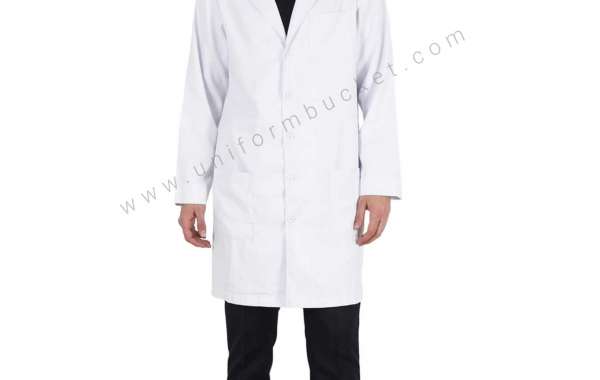Anxiety and depression are two of the most common mental health conditions affecting people worldwide. They often coexist, causing significant distress and impacting the quality of life of those suffering from them. Fortunately, anxiety and depression therapy has evolved, offering individuals a range of treatment options that can lead to significant improvements in mental health. In this article, we will explore different forms of therapy and treatments for anxiety and depression, their effectiveness, and how they can help individuals regain control over their lives.
What Are Anxiety and Depression?
Before delving into treatment options, it's important to understand what anxiety and depression are. Anxiety is characterized by excessive worry, fear, or unease about various situations, often accompanied by physical symptoms such as rapid heartbeat, sweating, and muscle tension. Depression, on the other hand, involves persistent sadness, a lack of interest in activities once enjoyed, feelings of hopelessness, and in some cases, physical symptoms like fatigue and changes in appetite or sleep patterns.
Though different, anxiety and depression often overlap. Individuals with anxiety may experience depression, and vice versa. This connection is why many therapy approaches target both conditions simultaneously.
The Importance of Therapy in Treating Anxiety and Depression
Therapy plays a crucial role in addressing anxiety and depression. While medication can be an effective tool in managing symptoms, therapy focuses on uncovering the root causes of these conditions, equipping individuals with tools to manage their mental health long-term. Anxiety and depression therapy typically involves understanding thought patterns, emotions, and behaviors, then developing strategies to cope with and change these patterns.
Here are some of the most effective therapy approaches used in the treatment of anxiety and depression.
1. Cognitive Behavioral Therapy (CBT)
Cognitive Behavioral Therapy (CBT) is one of the most widely used and researched therapies for both anxiety and depression. The core principle of CBT is the connection between thoughts, emotions, and behaviors. This therapy helps individuals recognize negative or distorted thinking patterns that contribute to their feelings of anxiety and depression. Once these patterns are identified, individuals can work on changing them, leading to improved emotional well-being.
CBT for anxiety and depression typically involves:
- Identifying Negative Thought Patterns: Therapists work with individuals to uncover thoughts that may be contributing to their anxiety and depression. These might include irrational fears or catastrophic thinking.
- Challenging and Reframing Thoughts: Once negative thoughts are identified, the therapist helps the individual challenge these thoughts and replace them with more balanced, realistic perspectives.
- Behavioral Activation: For individuals with depression, behavioral activation is a critical component of CBT. It involves encouraging individuals to engage in activities they once found pleasurable, even if they no longer feel motivated.
CBT is goal-oriented and often short-term, making it a popular choice for anxiety and depression treatment. Many individuals experience significant improvements within 10 to 20 sessions.
2. Mindfulness-Based Therapy
Mindfulness-based therapy is another highly effective approach for treating anxiety and depression. This form of therapy focuses on the present moment, encouraging individuals to observe their thoughts and emotions without judgment. Mindfulness-based approaches, such as Mindfulness-Based Cognitive Therapy (MBCT) and Mindfulness-Based Stress Reduction (MBSR), combine mindfulness practices with traditional cognitive therapy techniques.
For individuals with anxiety, mindfulness helps by reducing the tendency to become overly focused on future fears or worries. In the case of depression, it assists in preventing individuals from ruminating on past events or negative emotions. The practice of mindfulness can improve emotional regulation, increase self-awareness, and foster acceptance.
3. Dialectical Behavior Therapy (DBT)
Originally developed to treat borderline personality disorder, Dialectical Behavior Therapy (DBT) has been adapted to address anxiety and depression. DBT combines cognitive-behavioral techniques with mindfulness practices, but with a focus on emotional regulation, distress tolerance, and interpersonal effectiveness.
DBT is particularly useful for individuals with anxiety and depression who struggle with intense emotions and difficulty managing interpersonal relationships. The therapy teaches practical skills in four key areas:
- Mindfulness: As with mindfulness-based therapy, DBT emphasizes staying present in the moment.
- Distress Tolerance: Individuals learn how to cope with and tolerate painful emotions in difficult situations without resorting to unhealthy behaviors.
- Emotional Regulation: DBT provides tools to help individuals identify, understand, and manage their emotions more effectively.
- Interpersonal Effectiveness: Individuals develop skills to improve communication and build healthier relationships.
DBT is typically a longer-term therapy than CBT, but it can be life-changing for individuals who experience chronic anxiety or depression.
4. Interpersonal Therapy (IPT)
Interpersonal Therapy (IPT) is a short-term treatment specifically focused on improving relationships and social functioning to reduce symptoms of anxiety and depression. IPT is based on the idea that psychological symptoms, like anxiety and depression treatment, can be related to problems in personal relationships. This therapy helps individuals understand their interpersonal issues and how these problems contribute to their mental health conditions.
IPT focuses on four main areas:
- Grief or Loss: The therapy helps individuals deal with the emotional impact of losing someone close.
- Role Transitions: Life changes, such as starting a new job, getting married, or becoming a parent, can trigger anxiety or depression, and IPT helps individuals navigate these transitions.
- Interpersonal Disputes: IPT aids in resolving conflicts with others, improving communication, and reducing relationship stress.
- Social Skills Deficits: For those who struggle to form or maintain relationships, IPT teaches skills to improve social functioning.
IPT is often used as a short-term treatment, lasting about 12 to 16 weeks.
5. Exposure Therapy
Exposure therapy is specifically designed for individuals with anxiety disorders, though it can also be beneficial for those with depression. The idea behind exposure therapy is to gradually expose individuals to situations or thoughts that trigger their anxiety in a controlled and safe environment. Over time, this exposure reduces the fear or anxiety associated with these situations.
Exposure therapy is highly effective for conditions such as social anxiety disorder, panic disorder, and specific phobias. It works by breaking the cycle of avoidance that often perpetuates anxiety. Through repeated exposure, individuals learn that their feared outcomes are unlikely to occur, or that they can manage the discomfort that arises.
6. Group Therapy and Support Groups
While individual therapy is often the first line of treatment for anxiety and depression, group therapy can also be incredibly beneficial. In group therapy, individuals meet with others who are experiencing similar challenges. This can provide a sense of community, reduce feelings of isolation, and offer new perspectives on coping strategies.
Support groups, led by a therapist or peer, offer a safe space to share experiences, provide mutual encouragement, and learn from others' journeys. They can be especially helpful for individuals who feel isolated by their anxiety or depression.
Conclusion
The treatment of anxiety and depression often requires a multifaceted approach, combining therapy, lifestyle changes, and in some cases, medication. Each individual is unique, and what works for one person may not work for another. The key is to find a treatment plan that fits an individual's specific needs and offers a path to recovery.
Anxiety and depression therapy offers various effective treatments, including CBT, mindfulness-based therapy, DBT, IPT, and exposure therapy. These therapies empower individuals to understand and manage their conditions while providing tools for long-term mental health. If you or a loved one is struggling with anxiety or depression, seeking professional help is essential. Effective treatment is available, and mental health professionals can guide you through the process of finding the right therapy. For personalized care and support, consider reaching out to Dr. King Therapy, where compassionate and evidence-based treatment options can help you regain control over your mental health.










